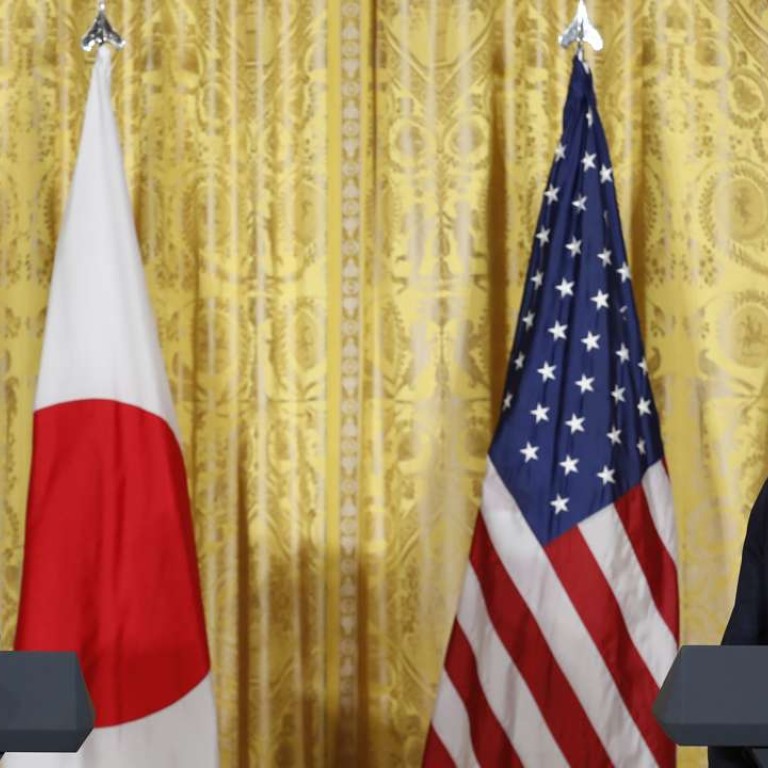
Trump reiterates US support for Japan over Diaoyus in meeting with Abe
US President Donald Trump, fresh from patching up ties with China, has reassured Japanese Prime Minister Shinzo Abe of US support in any conflict over the disputed Senkaku islands, known as the Diaoyus in China.
Taken together, these pronouncements suggest a shift by Trump toward a more mainstream stance on policy in Asia.
In a joint statement, Trump and Abe said they “oppose any unilateral action that seeks to undermine Japan’s administration of these islands” – comments that are sure to rile Beijing.
This display of unity and reassurance suggests the policy of the previous administration under Barack Obama will continue – a rare point of consensus after Trump’s promises to undo much of his predecessor’s legacy.
“This [stance on Diaoyu Islands] could be taken as the official policy direction of this administration,” said Ren Xiao, an expert on Sino-US relations at Fudan University. “The defence minister said the same thing when he visited Japan. Now the president said it again. It was also the continuation of the Obama administration’s take on the matter after the nationalisation of Diaoyu Islands in 2012.”
The Oval Office meeting between Trump and Abe came hours after Trump acknowledged Beijing’s central “one-China” policy during a call with President Xi Jinping.
That statement was similarly likely to ease anxieties in East Asia after Beijing was angered and other capitals rattled by earlier suggestions Trump might use Taiwan as leverage in negotiations about trade and security.
Although Japan is a historic rival of China, Trump said his long and “warm” conversation with Xi would also benefit Tokyo.
“I believe that will all work out very well for everybody, China, Japan, the United States and everybody in the region,” Trump said at the joint news conference.
Abe has been determined to build a personal rapport with the new US president and neutralise simmering disputes. Ties have been strained by Trump’s willingness to question US defence commitments and his rejection of the Trans-Pacific Partnership trade deal. Abe dodged questions about trade, preferring instead to compliment the US president.
“Donald, Mr President, you are an excellent businessman,” Abe said, praising Trump on everything from his meteoric political rise to his golf game. “My scores in golf are not up to the level of Donald at all.”
Although he nodded along and seemed to be listening intently, Trump was not wearing a translation earpiece during Abe’s remarks. Asked if Trump had worn an earpiece, Sarah Huckabee Sanders, the White House deputy press secretary, said: “I don’t believe during that time.”
Abe’s efforts appeared to have paid off. After some tough anti-Japanese rhetoric on the campaign trail, Trump embraced long-standing defence agreements and “free, fair and reciprocal” trade.

“We’re committed to the security of Japan,” Trump said. “The bond between our two nations and the friendship between our two peoples runs very, very deep. This administration is committed to bringing those ties even closer.”
Japan’s biggest business lobby, known as Keidanren, hailed the “personal relations of trust between Prime Minister Abe and President Trump”.
Although Abe has pushed ahead with his efforts to expand Japan’s military capabilities, Tokyo still relies on US security guarantees.
“Abe’s visit could be seen as a consolidation of the US-Japan alliance,” said Liang Yunxiang, Sino-Japan specialist with Peking University. “Japan could be reassured that the original defence cooperation ... will remain and even be strengthened.”

